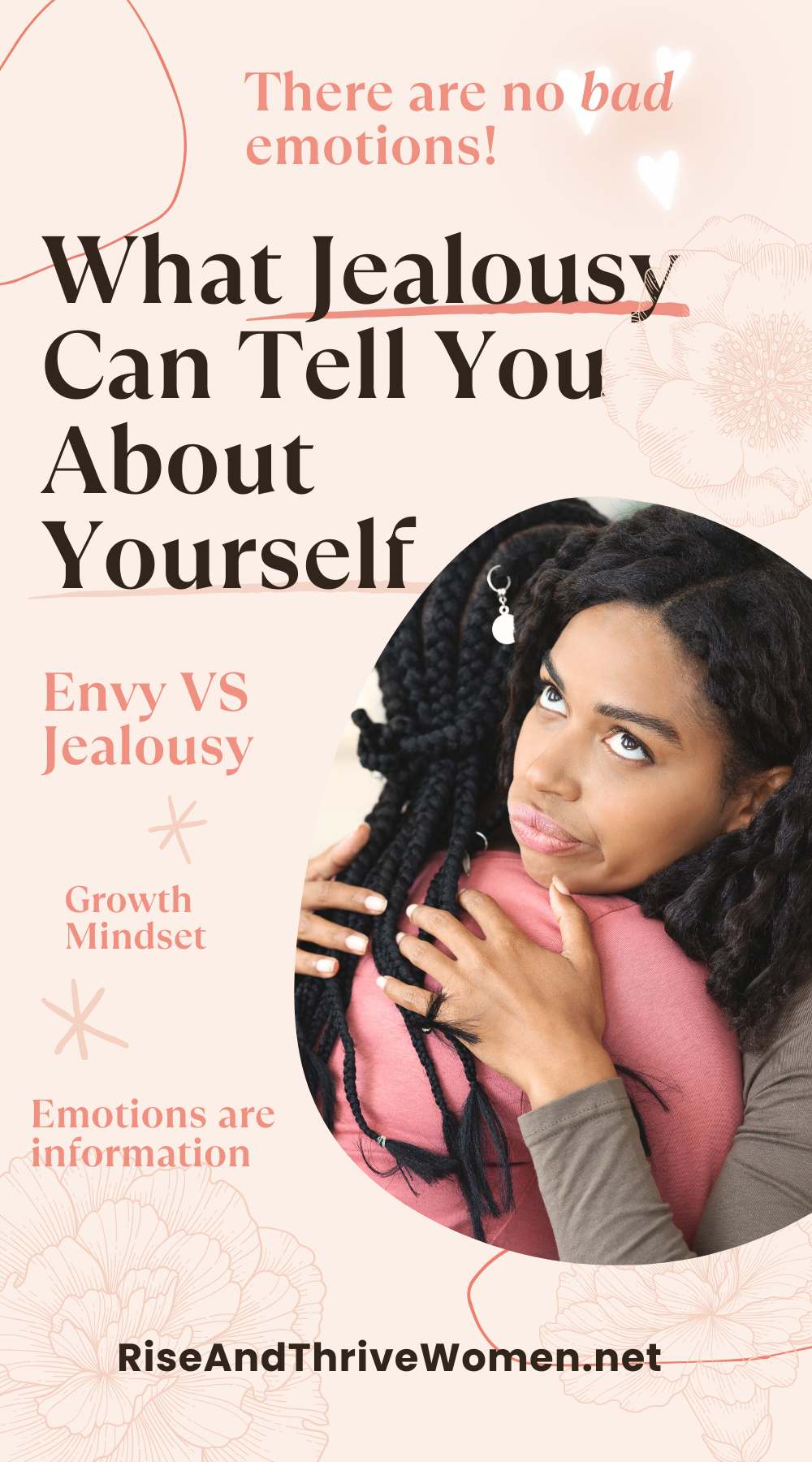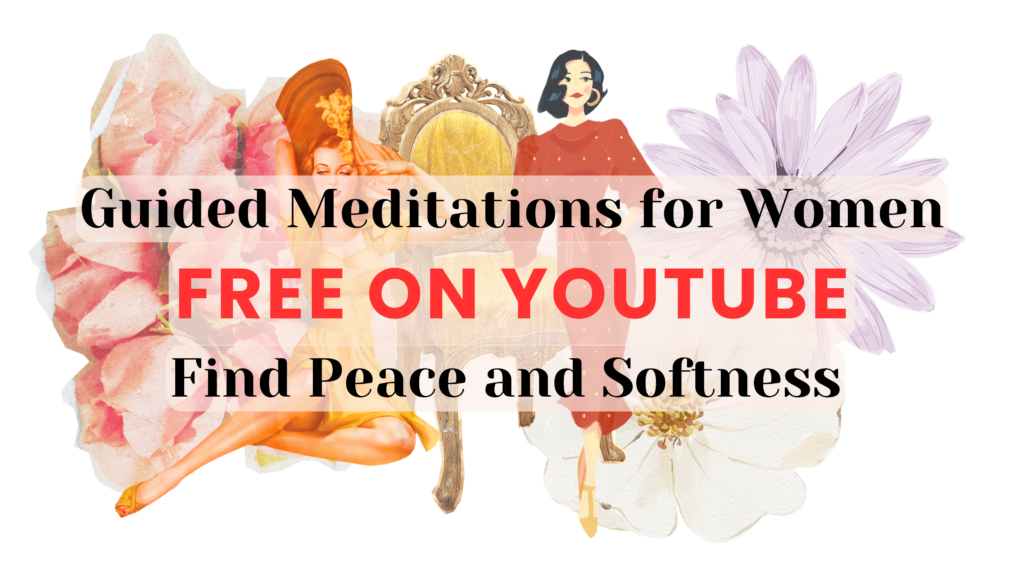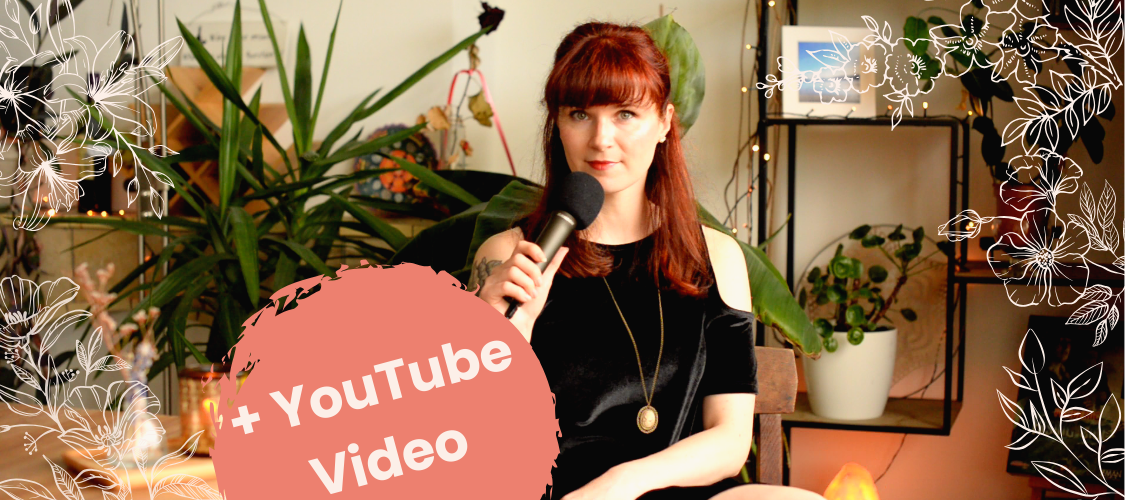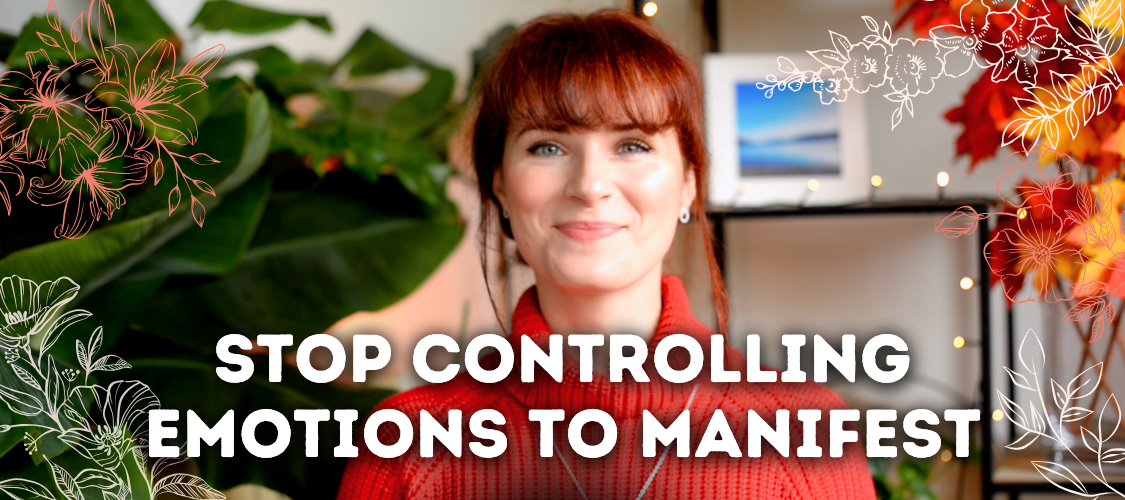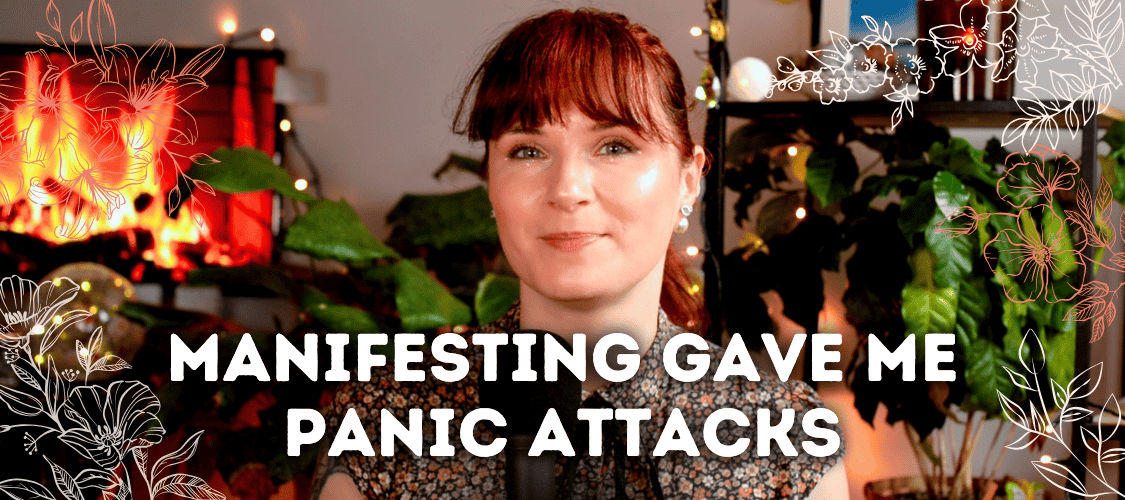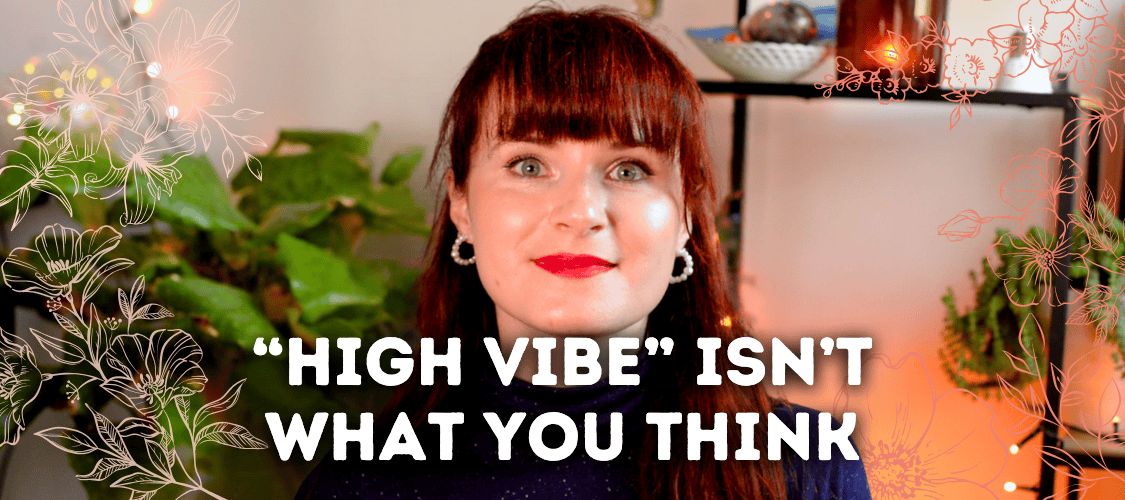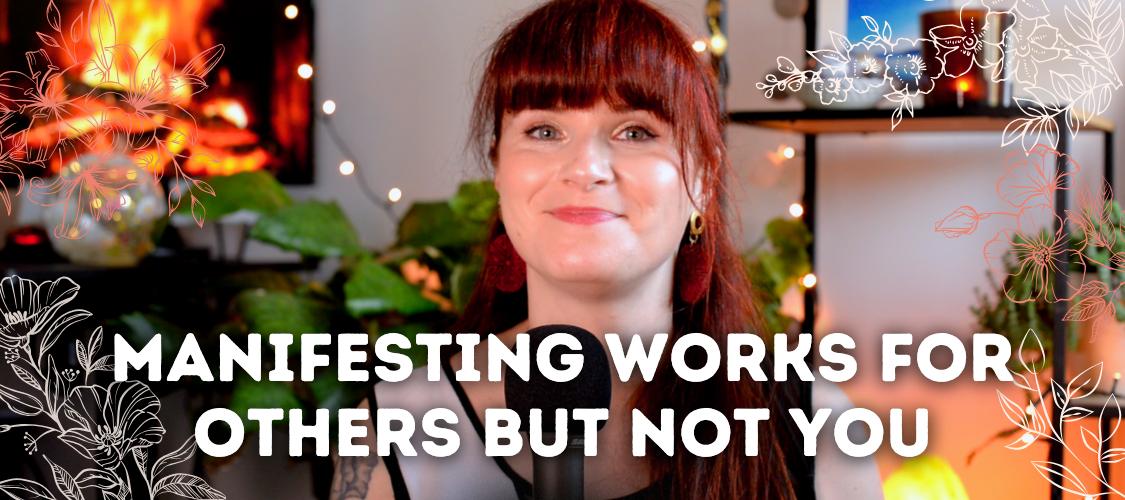We like to classify emotions as good and bad, positive and negative—the ones that uplift us and the ones that bring us down. However, just as there is no high without low, no light without darkness, we cannot dwell in a constant state. What if I told you that all your emotions are signals, loving messages from your higher self, your intuition? Let’s learn what can jealousy teach you.
There Are No Inherently Bad Emotions
I would like you to develop the mindset that nothing you could feel, think, or intuit is dangerous, abnormal, or threatening to you or your life in any way. No emotions are inherently bad because each serves as feedback to us. Based on the emotions we’re experiencing, we can evaluate the state we’re dwelling in.
Emotions are energy in motion, and they are there to make you so uncomfortable that you finally change things. Once you do, you won’t experience these uncomfortable feelings after some work. And when you do, then mission accomplished. Job done.
Example: Let’s say you feel very drained and uninspired at work. It seems to you that work is the factor that always spoils your mood. You also notice that you don’t really envy anybody at work, even the top principals and partners; their success is just uninteresting to you. On the other hand, you’ve always admired and envied those who can travel for work. In this context, envy is not a bad thing at all. It shows you right here what you desire. And that you should go for it.
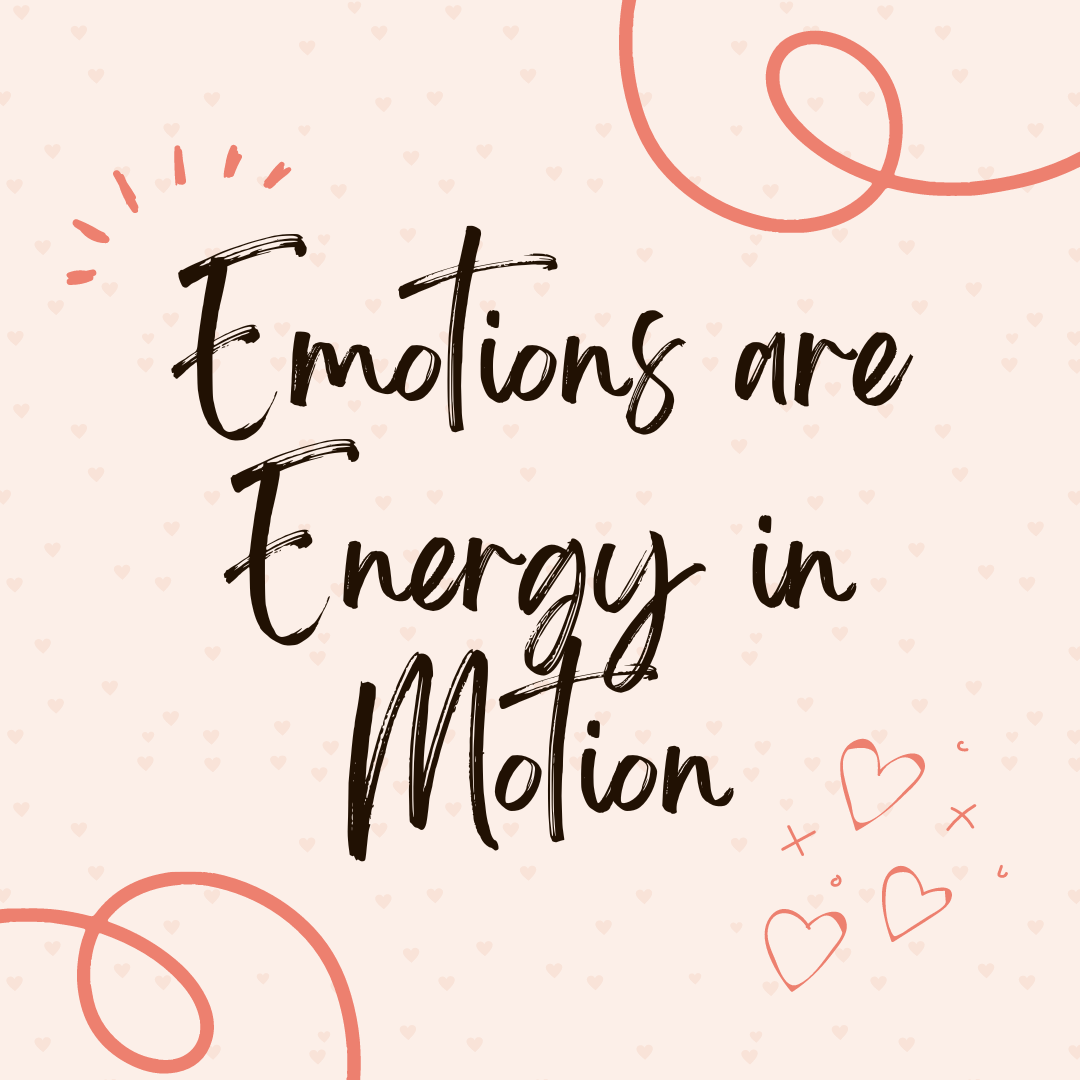
Envy vs Jealousy
Jealousy and envy are related emotions but are distinct in their nature and the contexts in which they arise. What can jealousy teach you?Jealousy is usually connected to relationships, lower self-esteem, and insecurities, while envy is about wanting what someone else has.
Envy occurs when a person lacks another’s superior quality, achievement, or possession and either desires it or wishes that the other person lacked it. The focus is solely on what someone has that you lack. It can involve feelings of inadequacy, as if others around you move up the social hierarchy while you stay in place. Envy often arises in situations of comparison.
On the other hand, jealousy occurs when a person perceives a threat to a valued relationship from a third party. It involves fear of loss, mistrust, or insecurity. The focus is on protecting what you already have. It’s the fear or suspicion that what you have will be taken by someone else.
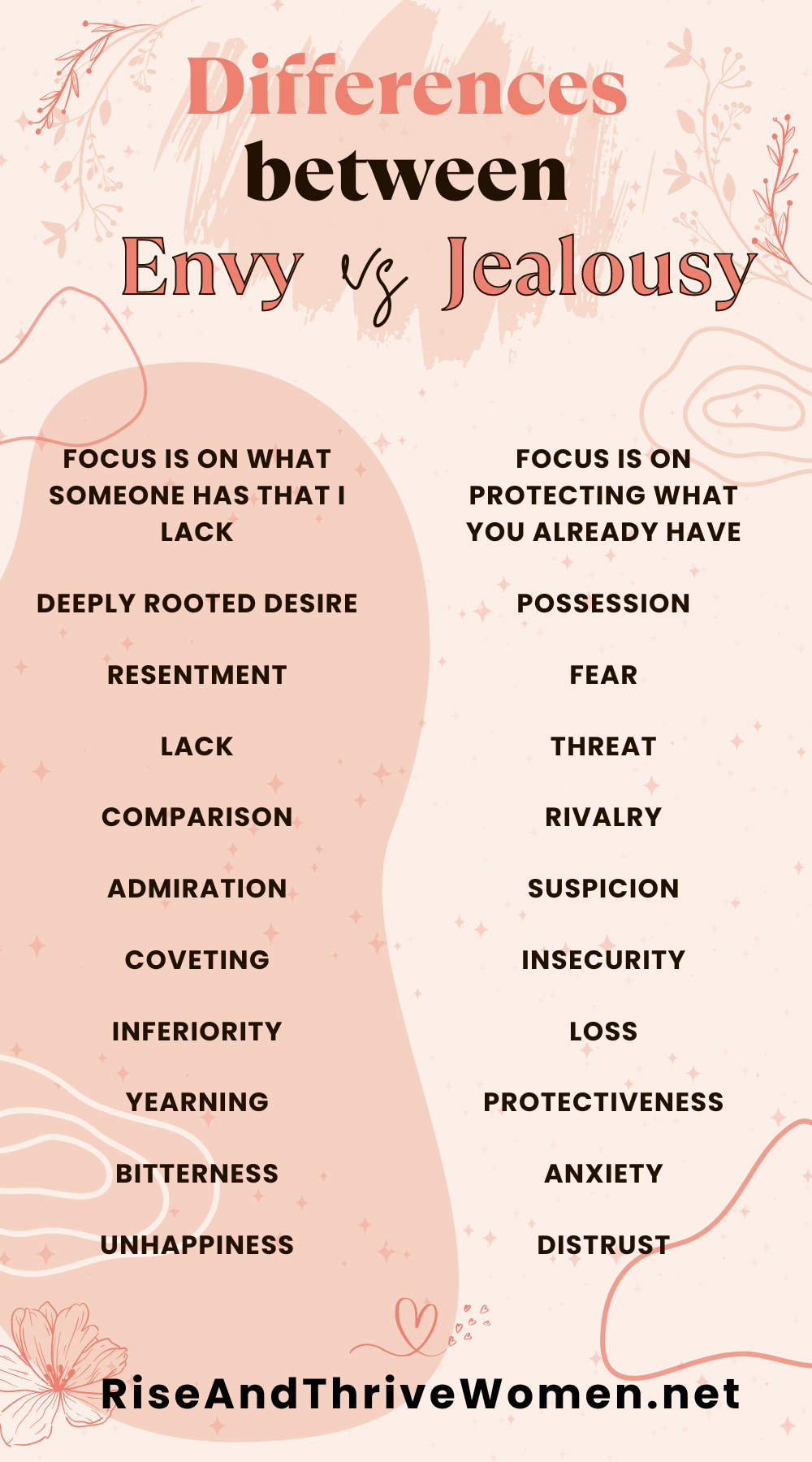
Why Do They Appear? It Starts With You
It all starts with total self-acceptance. When we start looking at ourselves in a loving way, we know that nothing we feel, think, or intuit is a threat. It’s a loving message from within. So, be open-minded to discover more.
These emotions come up so that we can address them with love. There’s no shame or need for judgement when you feel jealousy or envy, or any other “negative” emotion for that matter.
Each emotional response I have is valuable information about me—who I am, what I want, and what potential points of improvement I can still examine. We learn about ourselves all our lives, and it’s the most exciting journey of all.
Jealousy and envy are not enemies; they are indicators. What can jealousy teach you about your current situation? Have you been feeling a bit more insecure lately? Is your self-concept (or self-image) a bit wobbly recently? Do you have some underlying fears at the moment? We often feel so much at once that what we think we’re upset about is not really what is upsetting us; it’s just emotional spillover or emotional misattribution.
Emotional Spillover
Emotional spillover occurs when emotions generated in one context or situation transfer and influence our reactions and feelings in another, often unrelated, context. This can lead to misattributing the source of our emotions, where we might think we’re upset with someone or something specific, but the actual cause lies elsewhere, like stress from work or underlying fears.
This is why it’s so important for you to sit with yourself regularly, meditate, and observe your thoughts and emotions (and journaling them). This regular practice will provide you with insights into what is really going on. Sometimes all we need to do is create this space for the subconscious mind to figure it out.
When you experience a time of heightened emotions, retrace and go within. Try not to react to people triggering you at that time, and it’s more than okay to say, “Let’s talk about this some other time because I am feeling some things that I have to process by myself first.” Before we react and have an argument with a loved one who didn’t mean to cross us that way, we should take stock of what’s going on within.
And then suddenly, one day, you will understand what is really bothering you.
When Envy is Information
Emotions are artefacts of the past. There was a trigger in our external world; we reacted to it internally due to the meaning we assigned to it, and then the emotion appeared. Sometimes it appears with a significant delay because we inhibit them the moment it happens. The past then exists only in your body, in the form of emotions, so in a way when you dwell on it, you’re living in the past.
Jealousy can serve as a powerful indicator of underlying emotions, needs, and areas for personal growth. Understanding what jealousy tells you about yourself can be a valuable step towards self-awareness and improvement.
Be open-minded and don’t see these points as an attack or something to make you feel bad, but as valuable information you can learn from and make changes.
Here are several insights jealousy can provide:
Not Living to Your Full Potential
We often see successful or wealthy people as dishonest, manipulative, and immoral. However, such sentiments are a sign of deeply-rooted envy, and it’s a powerful signal. Because deep down, you feel some kind of resentment towards yourself for not having more and not being professionally what you could be. The first step is to accept yourself and your situation, forgive yourself, and start to figure out what it is that you want. Then, ask yourself: what is the first small step I can take right now towards this new goal?
Unfulfilled Desires and Goals
Sometimes, our purpose is in something else, and the emotions will be feedback from your divine within. It can reveal dreams and goals you may have put on hold or not actively pursued. Maybe they seemed too big. This inner inhibition can stop you from wanting what you want for a while, but it will come to the surface eventually. When you see others doing what you deep down want for yourself, you will experience envy. And this is my favourite type of envy because it’s beautiful guidance from my higher self. I should listen and start believing that I can create for myself the life I love. Sit with yourself to figure out what you want and go for it. Your desire is yours, and you’re deserving of it 100%.
Inhibition and Low Self-Esteem
When we receive too much negative feedback in life, we learn that it’s better not to try than to fail again. Because the criticism we heard hurt us so much, we tried to avoid it and we feel like when we do something wrong, we conclude that self-expression itself is wrong, or that success for us is wrong. So, we understood that in order to remain perfect, we can become stagnant. This self-inhibition goes hand in hand with low self-esteem and a fragile ego. I’m not saying this to make you feel bad, but to empower you that if these mechanisms were developed by experience, you can also change them by experience. Put yourself out there and realise that mistakes are learning opportunities and feedback from others – just words. You can decide not to assign them too much meaning.
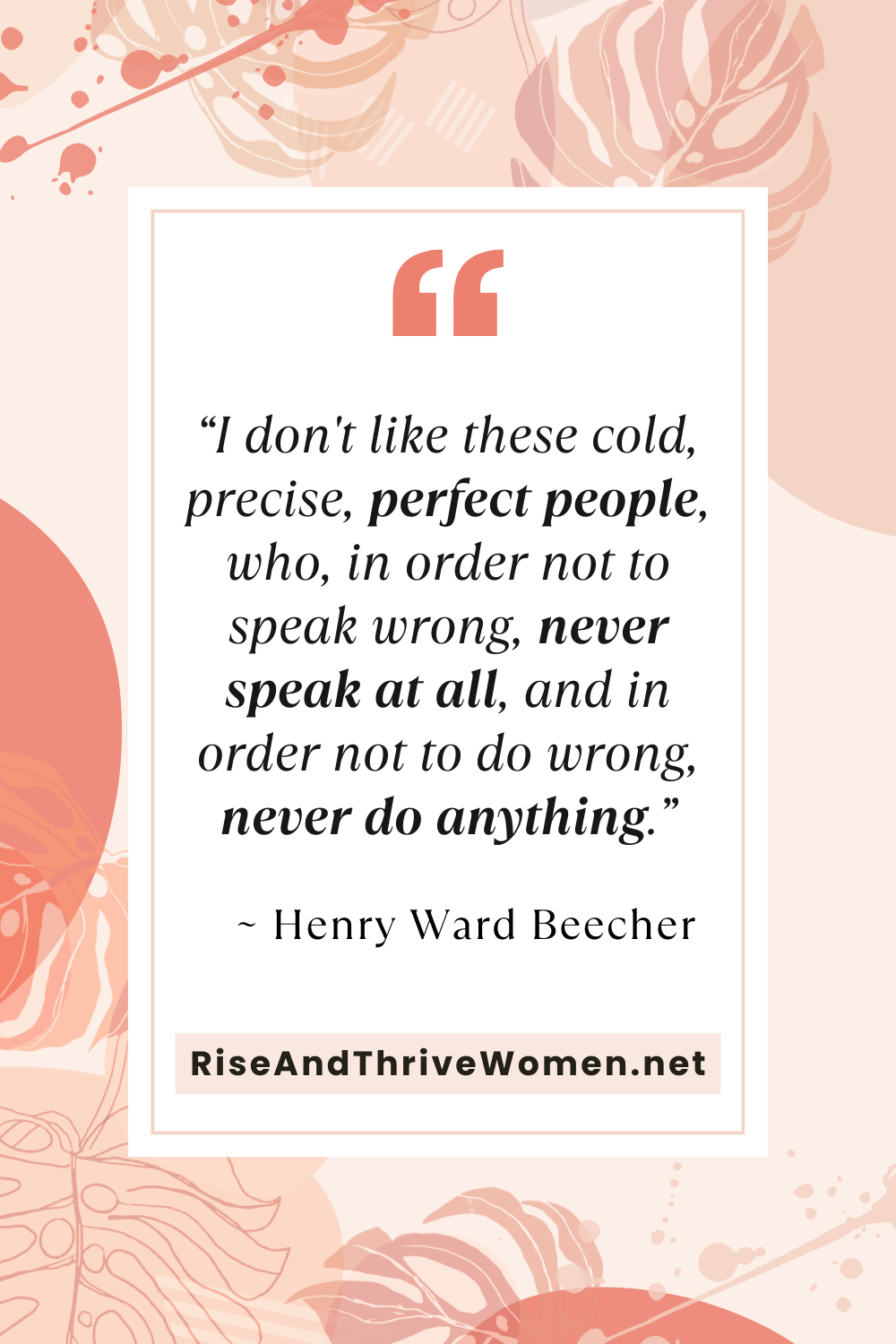
Unhealed Attachment Trauma
Feelings of jealousy in relationships can reflect attachment styles and fears of abandonment or inadequacy. It could be a sign of a lack of trust in your partner or even trust in yourself. We do not always realise that we project our self-perceived value to the world. Very often, the lack of self-esteem in your relationship may cause disruption in the dynamic of the relationship and suspicion of your partner’s disloyal behaviour. Improve self-trust and work on your self-love to increase confidence, which can prevent you from sabotaging your relationship due to insecurities. Cease comparing yourself to others! You are beautiful and unique in your own way, so embrace it as the main character of your life!
Unmet Needs
Jealousy can signal unmet emotional needs, such as the need for recognition, validation, or affection. You can peacefully communicate this to your partner, friends, and family if you feel this could help. However, I always encourage everyone to become their own source of love and fulfilment. It’s a process and takes time. But instead of looking for external validation, realise that it only works because you assign meaning to what others say. Shift this dynamic by validating yourself and treating it as seriously as you would if someone else said it to you. Finding your purpose is definitely a great remedy for this feeling.
It Reveals Your True Values
Envy can reveal what you truly value, such as success, love, or freedom. Jealousy might indicate that your current lifestyle or choices are not aligning with your core values and priorities. It’s never too late to start something new because time will pass anyway. In 5 years, you will be 5 years older regardless of whether you start working on your dream life for 30 minutes a day or not. But you might find yourself in a completely different place if you do. 30 minutes a day may not be a lot, but it’s over 180 hours a year, which is over 37 days in a span of 5 years! This is the power of compounding. Recognising jealousy as a signpost can motivate you to work on personal growth and self-improvement. Start by implementing a productive and peaceful morning routine.
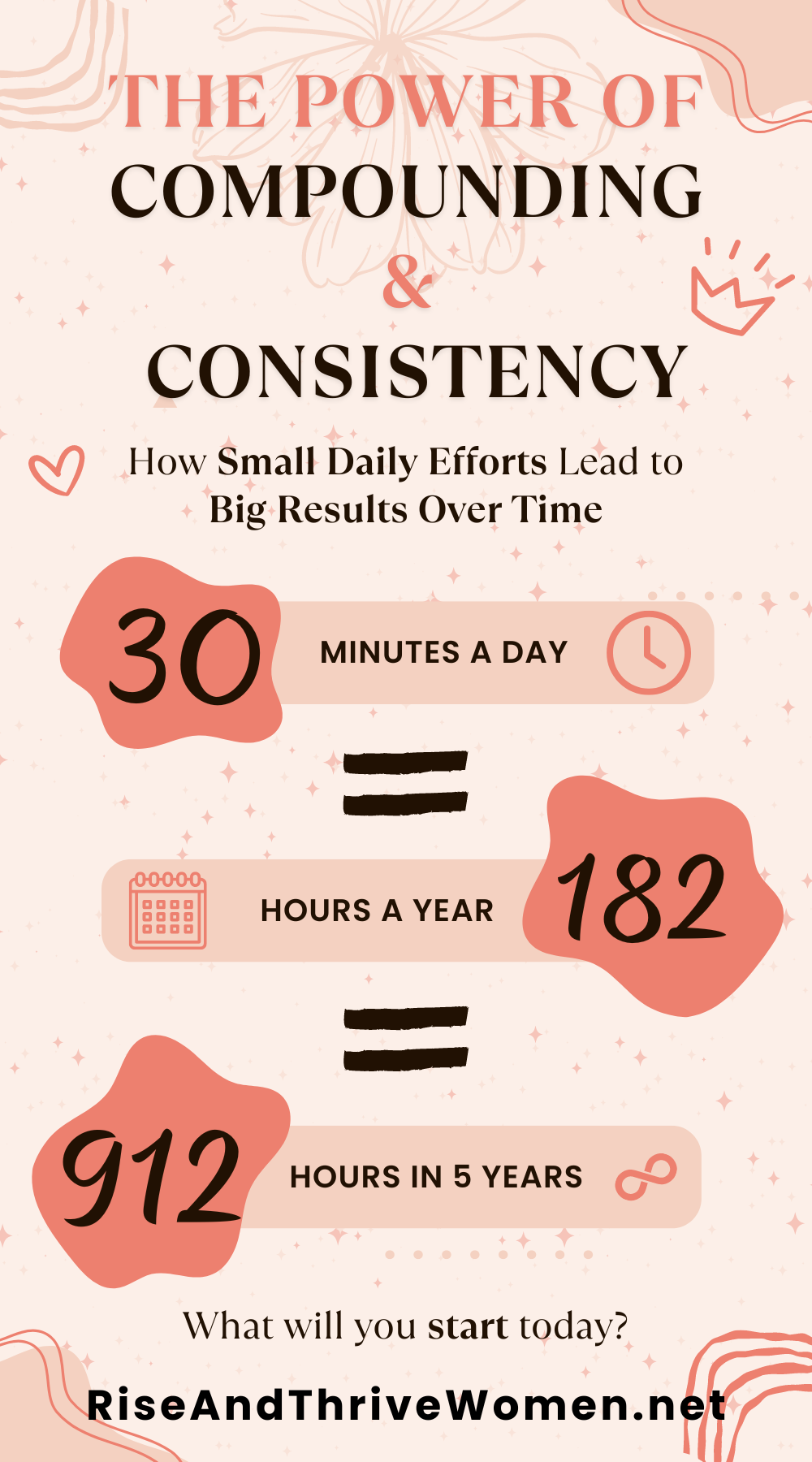
Feedback on Your Resilience and Emotional Maturity
How you handle jealousy can shed light on your emotional resilience and coping mechanisms. It can show you whether you tend to react impulsively or can manage your emotions constructively. Understanding your jealousy can help you develop healthier ways to manage stress and emotional discomfort. Every trigger is an opportunity to slow down, sit with yourself, and get to know yourself better. Read more about how to deal with negativity.
Motivation for Change
Jealousy can be a powerful motivator for change, pushing you to take action towards achieving your own goals and improving your life. It encourages introspection and a deeper understanding of what truly matters to you. You can use this emotion as a tool for personal growth, self-awareness, and positive change.
Conclusion
Understanding and embracing emotions like envy and jealousy can be a powerful tool for personal growth and self-awareness. In this blog post we explore what can jealousy teach you about yourself. These emotions, often seen as negative, are actually valuable indicators that highlight unmet needs, unfulfilled desires, and areas for potential improvement. By paying attention to what triggers these feelings, you can gain insights into your true values, aspirations, and underlying emotional wounds.
Instead of viewing envy and jealousy as threats, we can discover what can jealousy teach you about yourself. See them as opportunities to reflect and make positive changes in your life. Cultivate self-acceptance, address your insecurities, and use these emotions to guide you towards a more fulfilling and authentic existence. Remember, every emotional response is a chance to learn more about yourself and to grow into the best version of who you are meant to be.
Recommended next post to read:
HOW TO GIVE YOURSELF PRINCESS TREATMENT
HOW TO FILL YOUR SELF LOVE TANK
5 TIPS HOW TO STOP OVER-INVESTING IN A RELATIONSHIP

